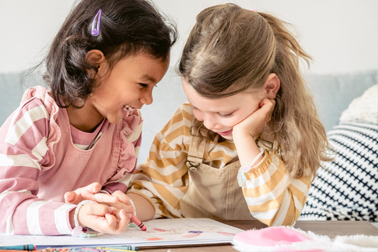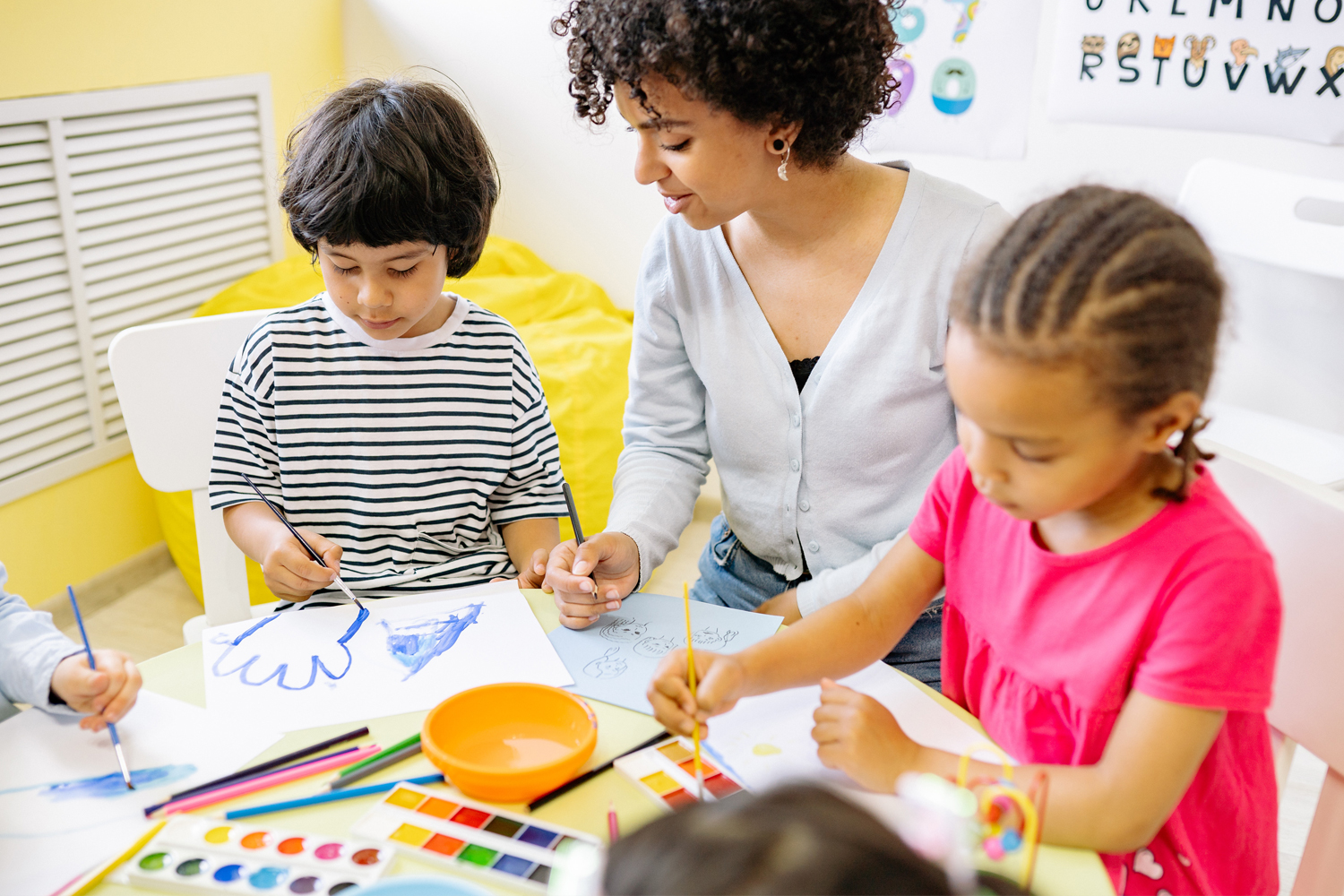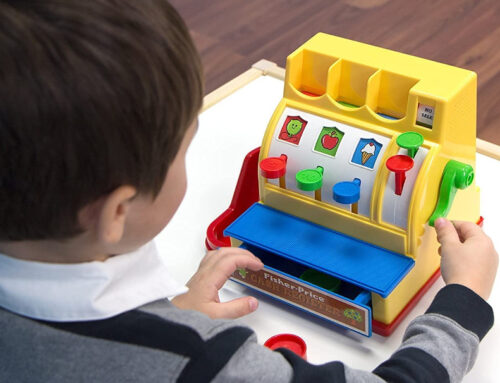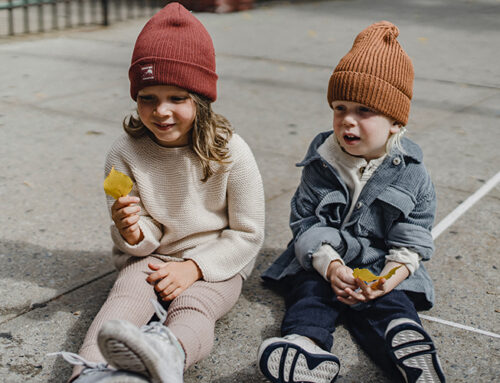Children gain a lot of knowledge and skill when in a peer rich environment that supports their development and growing self-efficacy. Peers can support children in reaching their full potential and provide them opportunities to practice social skills within a safe and nurturing environment. This blog talks about how and why peer interaction plays an important role in your child’s growth and development. Children benefit from peer models because they are more likely to believe they can complete a task or play a simple game when observing a successful model similar to themselves, thus promoting the child’s self-efficacy.
Self-efficacy is the belief that you can perform a task or manage a situation; it is about learning how to persevere and try again when presented with a challenge. When children equate success to internal factors, they develop a sense of mastery, which in return reinforces a stronger self-efficacy belief system. A child with higher self-efficacy has more motivation to attend and participate, can be less anxious in challenging situations or less preferred activities, and demonstrates greater resilience and flexibility towards challenges. For many children, early preschool experiences can be their first time in a structured setting with teachers and groups of children.
Blue Bird Day provides a nurturing and warm environment where children can learn self-efficacy through the support of our multi-disciplinary therapists and with individualized accommodations to set every child up for success. Our Blue Bird Day clients are grouped into small pods with consistent classmates, with whom they learn to share, follow instructions, and begin the foundation for learning with the support of our Social Workers, Therapeutic Assistants, and Behavior Technicians. The Blue Bird Day staff support children with developing early self-esteem and self-efficacy necessary for social-emotional development by providing them many experiences to practice their skills alongside peers. Children are encouraged as they complete activities in their Physical, Speech, Developmental, and Occupational Therapy rotations, benefit from seeing examples set forth by their peers, and are supported throughout their day.

The Developmental Therapists at Blue Bird Day take pride in supporting each child with practicing and acquiring the social skills necessary to engage in structured play sessions with peers. These peer interactions are important for children to learn and practice social pragmatic language, how to open and close interactions, self-esteem, and overall social-emotional developmental. Developmental Therapists tailor lessons to each child’s specific language ability and learning style. This allows the Developmental Therapists to guide the child through navigating peer relationships and interactions with the appropriate amount of support.
During the first week of the Fall session, Developmental Therapists support each child with learning their new peers through an interactive picture book of the entire class. During circle time, the children are supported by singing Hello to each friend. Each child also has the opportunity to look in the mirror and observe/reflect on their own personal characteristics including eye color, hair color, etc. The Developmental Therapists use these activities to narrate for each child similarities and differences while supporting the group with visually attending to their peers and/or commenting. Also, the Developmental Therapists use these activities to nurture a child’s curiosity and motivation to learn, not just about themselves, but about the people within their environment.
Peers can impact a child’s learning because peers do not have a position of authority over one another. But for some children, acquiring the skills and knowledge necessary for interacting positively and successfully with peers can be a challenge. Young children learn positive social skills through the natural process of observing and engaging in social interactions with peers. Blue Bird Day thrives on the importance of promoting children’s participation in social interactions through the individualized and supportive environment, in hopes of promoting their overall self-esteem and self-efficacy to tackle future social interactions.

Blue Bird Day fosters socialization, sensory regulation, and pre-academic learning in children ages 2-7 years in therapeutic rotations that simulate preschool and kindergarten settings. Our compassionate therapists practice a relationship-based and family-centered approach, provide parent training, and collaborate on goals and individualized intensive treatment plans for your child.
We believe in a collaborative and multi-disciplinary team approach to therapy. A team of occupational therapists, speech-language pathologists, dietitians, developmental therapists, behavioral therapists, physical therapists, and therapeutic assistants are created for each child to ensure child and family are fully supported and the best possible results are achieved.
Options for individualized, group and virtual therapy sessions are available as well.
Want to learn more or you have a specific question? Feel free to connect with us here!



